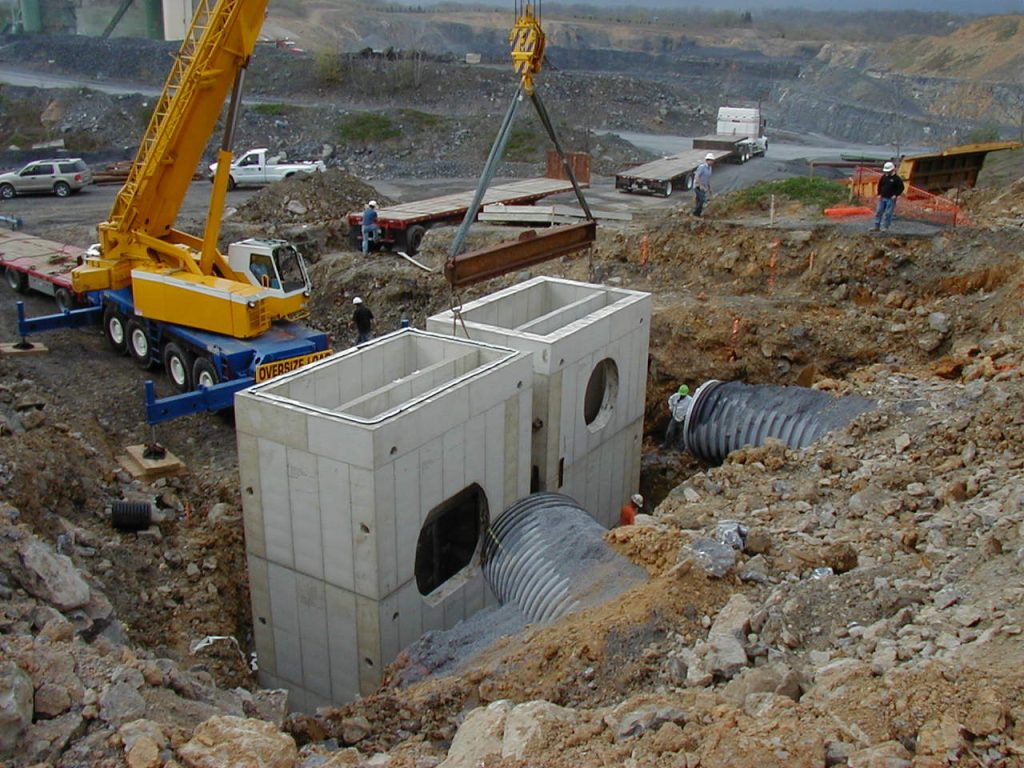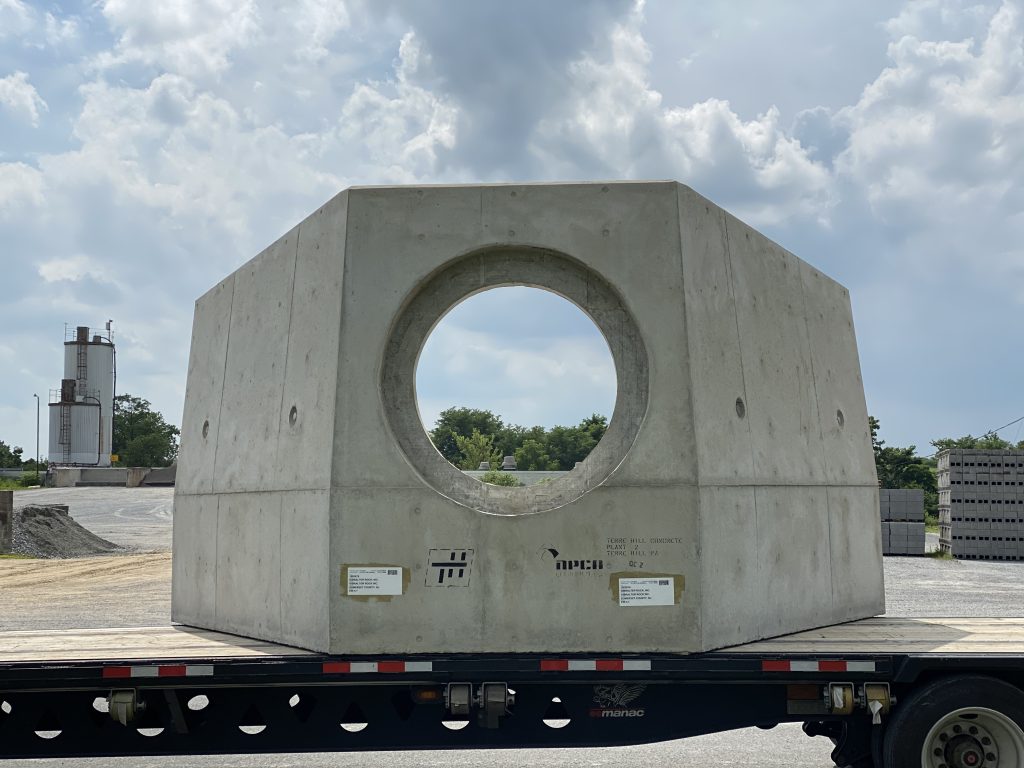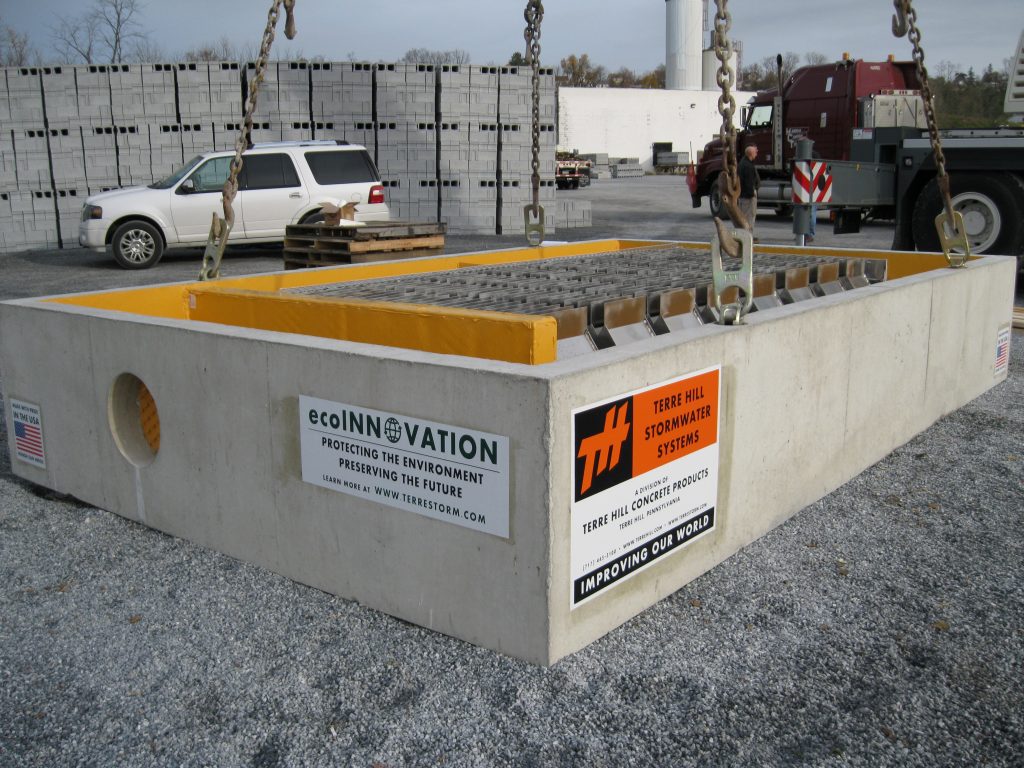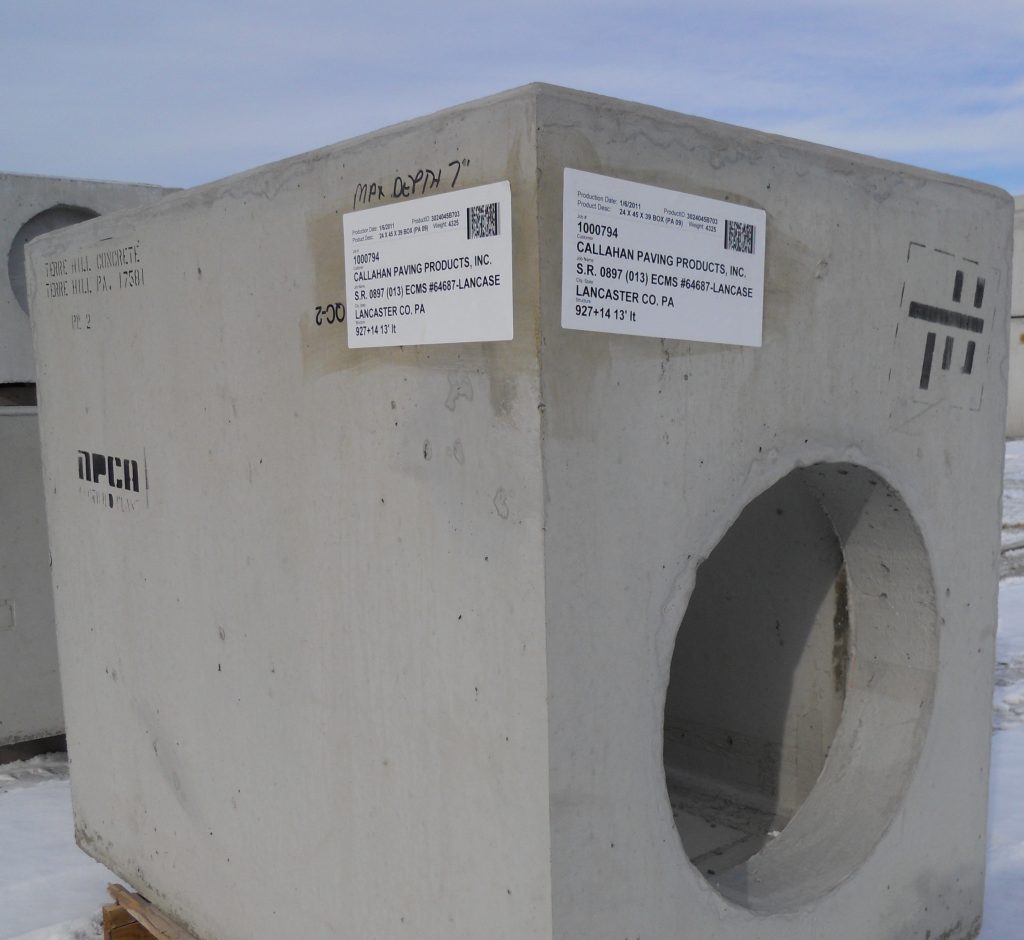
Terre Kleen™ Hydrodynamic Separator





Terre Kleen™ is a stacked inclined plate hydrodynamic separator used for treatment or pre-treatment of stormwater runoff.
The stacked inclined plate design creates greater surface area for sedimentation within a small structure footprint. The small structure footprint is advantageous for: site design and construction installation.
- CAD/PDF
- General Chart
- NJ Chart
- Specifications
- Plan Notes
- Maintain
- Warranty
- FAQ
| Title | DWG | |
|---|---|---|
| Terre Kleen™ TK01 | TK01.pdf | TK01.zip |
| Terre Kleen™ TK02 | TK02.pdf | TK02.zip |
| Terre Kleen™ TK05 | TK05.pdf | TK05.zip |
| Terre Kleen™ TK09 | TK09.pdf | TK09.zip |
| Terre Kleen™ TK18 | TK18.pdf | TK18.zip |
| Terre Kleen™ TK27 | TK27.pdf | TK27.zip |
| Terre Kleen™ TK36 | TK36.pdf | TK36.zip |
| Terre Kleen™ TK45 | TK45.pdf | TK45.zip |
| Terre Kleen™ TK54 | TK54.pdf | TK54.zip |
| Title | File |
|---|---|
| General Sell Sheet | Terre Kleen General Sell Sheet – 020918.pdf |
| Terre Kleen Certifications and Approvals | CERTIFICATIONS and APPROVALS.pdf |
| Title | File |
|---|---|
| NJ Sell Sheet | Terre Kleen NJ Sell Sheet 020918.pdf |
| Efficiency Chart | Terre Kleen NJDEP Efficiency Chart 2 12.16.16.pdf |
| Title | File |
|---|---|
| Specifications TK General | Specifications TK General.pdf |
| Specifications TK-02 | Specifications TK02.pdf |
| Specifications TK-05 | Specifications TK05.pdf |
| Title | File |
|---|---|
| Plan Notes TK-09 | Plan Notes TK 09.pdf |
| Plan Notes TK-18 | Plan Notes TK 18.pdf |
| Plan Notes TK-27 | Plan Notes TK 27.pdf |
| Plan Notes TK-36 | Plan Notes TK 36.pdf |
| Plan Notes TK-45 | Plan Notes TK 45.pdf |
| Plan Notes TK-54 | Plan Notes TK 54.pdf |
| Plan Notes TK-63 | Plan Notes TK 63.pdf |
| Title | File |
|---|---|
| Terre Kleen Maintenance Procedure | Terre Kleen Maintenance Procedure SHORT FORM 02.03.17.pdf |
| Title | File |
|---|---|
| Terre Kleen Warranty | Terre Kleen Warranty.pdf |
Frequently Asked Questions
What type/size clean-out equipment is used for maintenance of the Terre Kleen™?
Typically, a standard vacuum truck used for cleaning inlets is all that is required. No Confined Space Entry is required for clean out or maintenance.
Why is the Terre Kleen™ technology superior to other hydrodynamic separators
Terre Kleen’s stacking of inclined plates results in increased sedimentation area within the unit without increasing the horizontal footprint of the unit. The device footprint is marginally increased, while the sedimentation area is greatly increased Inclined plate sedimentation technology is the standard technology in the drinking water industry.
“STOKES LAW” also applies to vortex devices. The stated premise underlying a vortex device is that the angular acceleration has an affect that improves separation. This premise is only supportable at speeds much higher than the natural flow commonly experienced in stormwater systems. In vortex devices the cylinder does not rotate, so it does not perform like a centrifuge. The clear, undisputable factors of size & density of a particle, the rate of water flow and the amount of sedimentation area remain the controlling factors of sedimentation. There are no published scientifically supported data to prove otherwise.
What size particles does a Terre Kleen™ remove?
Terre Kleen™ removes 83% of the net annual weighted SSC with a PSD of 2 micron to 1000 micron. EPA ETV NSF has verified that the Terre Kleen™ removes 98% of particles = or > 200 micron.
Silt is removed by the Terre Kleen™ when the charged particle agglutinates to the larger particles or when the flow rate is low enough to allow it to settle and collect in the hopper. Generally, no particles smaller than 10 Micron are removed by sedimentation by any hydrodynamic separator.
What amount of trash and debris is removed by the Terre Kleen™?
Terre Kleen™ removes 100% of trash and debris. The fully baffled primary chamber and the internal by-pass design results in the continuous capture of all trash and debris regardless of the flow intensity. There is no loss of captured trash or debris at any flow.
What amount of oil and grease is removed by the Terre Kleen™?
The Terre Kleen uses flotation in the primary (receiving) chamber. Oil and grease are floated and absorbent booms absorb 1 quart of oil each. This removes virtually 100% of the oil and grease in normal stormwater runoff.
Does the Terre Kleen™ remove any other pollutants, i.e. phosphorus, glycols salts, nutrients, etc.?
Colloidal and dissolved particulates adhere or agglutinate to the coarser particulate. Thus, by settling the coarser pollutants, the finer particulates are removed by the carrier particle that sinks.
How often must a Terre Kleen™ be cleaned out?
The characteristics of each site are different. Quarterly inspection of the Terre Kleen™ is recommended during the first year after installation to determined the rate of accumulation of pollutants. It is expected that clean out will be required once every 2 years at a typical site.
Will the water inside of the Terre Kleen™ freeze?
Inspection of installed Terre Kleens™ has not shown any freezing of the water inside of a Terre Kleen™.
Does installation of a Terre Kleen™ require any special knowledge or experience?
No. Each Terre Kleen™ is delivered fully assembled within the precast concrete structure. Installation is no different from the installation of any precast concrete structure. Terre Hill Stormwater Systems provides an on site person to observe the installation to assure its proper installation.
Does Terre Hill Stormwater Systems provide any Warranty?
Yes. Terre Hill provides a four (4) year warranty against defective products. The warranty includes both labor and material.
What is the typical weight for each size Terre Kleen™?
- TK09 20,300 lbs
- TK18 24,600 lbs
- TK27 41,300 lbs
- TK36 51,200 lbs
- TK45 81,500 lbs
- TK54 90,000 lbs

